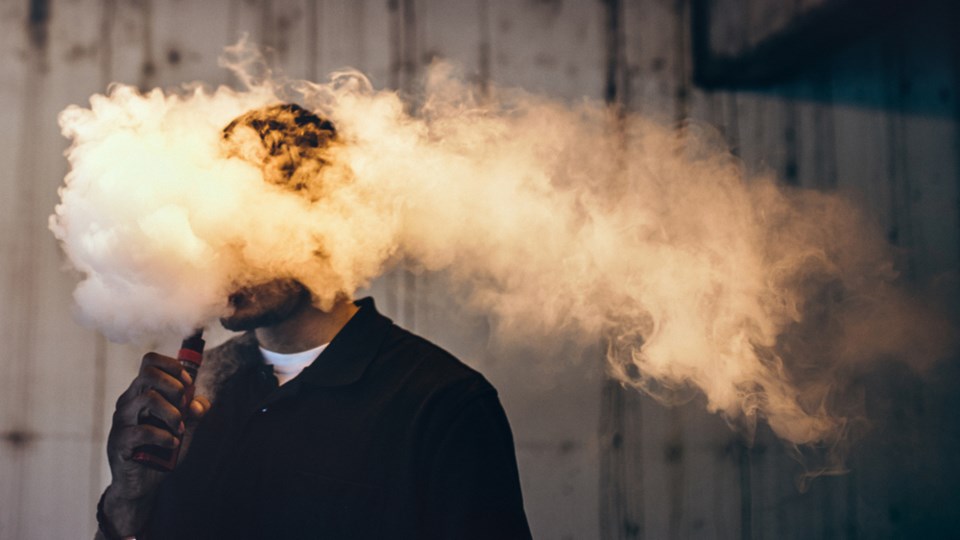A “narc” — that’s the way Amy describes her job as a tobacco and vape test shopper with B.C.’s largest health authority.
In British Columbia, retailers selling cigarettes or vape cartridges are supposed to ask customers who look younger than 19 to show identification. But that doesn’t always happen, said Fraser Health Wednesday.
That’s where test shoppers like Amy, who is only identified by her first name, come in. The 17-year-old is one of 12 teens working with Fraser Health’s Tobacco and Vapour Products Enforcement Team.
To catch scofflaw retailers, the health authority deploys the underage test shoppers in pairs, one to buy the product and another to watch how it all goes down. Afterwards, the two meet with an enforcement officer outside to report whether the retailer followed the law, said Fraser Health.
Last year, Fraser Health said 63 fines were handed out to retailers caught selling tobacco or vape products to underage shoppers.
Across Canada, 17 per cent of students between grades seven and 12 had ever tried a tobacco product, while seven per cent said they had used one in the past month, according to a recent Statistics Canada study.
And while StatsCan found most high school-aged students who smoked or vaped obtained tobacco products through social circles, that doesn’t mean minors aren’t buying cigarettes and vapes, said Alex Kwan, a health protection manager with Fraser Health.
“Almost every retailer who sells cigarettes is selling vapour products, and we’re seeing a lot more sales to minors,” he said in a statement.
Health Canada reveals new cigarette warning label
Tobacco is the leading preventable cause of illness and premature death in Canada. Every year, it kills 48,000 Canadians. That costs the healthcare system roughly $6.1 billion, according to Health Canada.
On Wednesday, Health Canada revealed new labelling it says will push tobacco use down across Canada to less than five per cent by 2035.
"Our government is using every evidence-based tool at our disposal to help protect the health of Canadians, especially young people," Health Minister Jean-Yves Duclos said in a statement.
Rob Cunningham, a lawyer and senior policy analyst for the Canadian Cancer Society, said he believes the new approach will provoke discussion, make cigarettes less appealing and be copied by other countries, including Australia and Norway, which cited Canada's intention in June 2022.
"It's going to reach kids who experiment by borrowing a cigarette from their friends. It is very cost-effective because tobacco companies pay for it. And it reaches smokers through almost 20 billion cigarettes sold each year in Canada," Cunningham said.
While graphic labels warning of the health dangers of cigarettes have adorned packaging for years, the new labels will be applied directly to the cigarettes themselves.
“Cigarettes damage your organs,” reads one example label in a photo circulated Wednesday.
“Poison in every puff,” cautions another.
"It's going to reach kids who experiment by borrowing a cigarette from their friends. It is very cost-effective because tobacco companies pay for it. And it reaches smokers through almost 20 billion cigarettes sold each year in Canada," Cunningham said.
Health Canada says the new regulations will start coming into effect on Aug. 1 and will be phased in over the coming months and years.
With files from the Canadian Press




